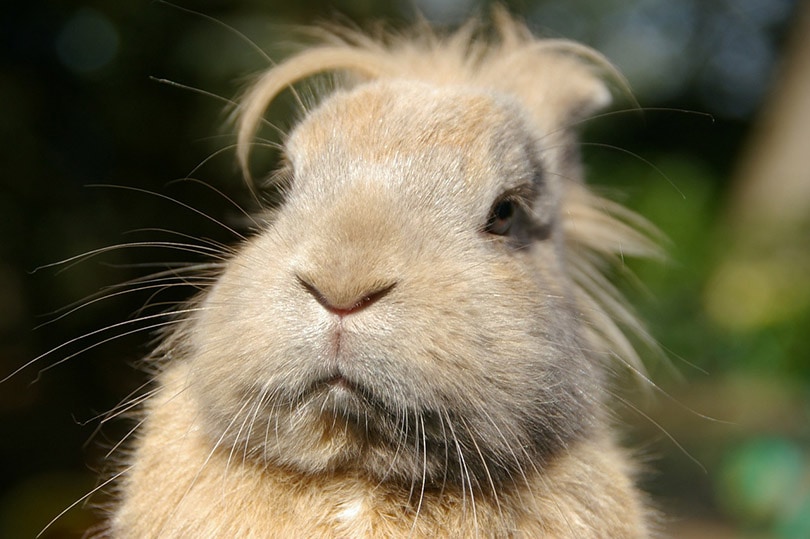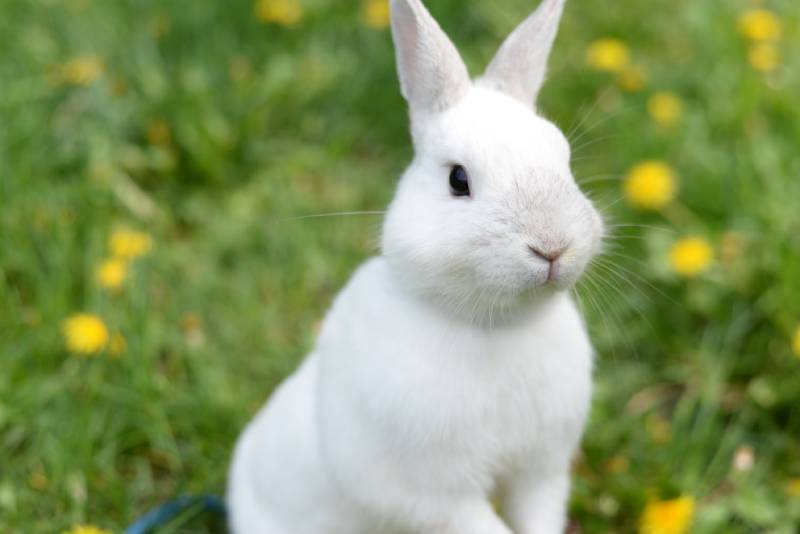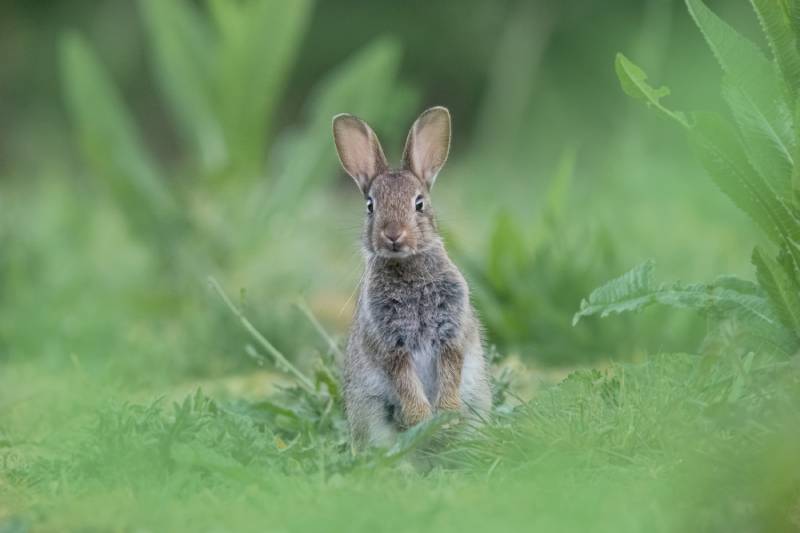
Rabbits are generally considered one of the cutest animals, and their twitching noses are one of their most adorable features. But have you ever wondered if there’s more to that wiggling bunny nose than making humans weak in the knees? Besides their incredible hearing, rabbits have an enhanced sense of smell and unusual nasal movements. Keep reading to learn four possible reasons that rabbits’ noses twitch and wiggle, plus what it means if this behavior stops completely.
The 4 Reasons Why Rabbits’ Noses Twitch & Wiggle
1. To Improve Their Sense of Smell
One of the most common reasons rabbits’ noses twitch and wiggle is to help them smell better. Rabbits rely on their sense of smell to give them information about the world around them, helping them find food and detect the presence of predators. Wiggling their noses allows more air into the rabbit’s nasal pathways for them to smell. More air means more potential knowledge to be gained. Pet bunnies are relatively safe, but the extra information that nose twitching provides could be lifesaving for wild rabbits.

2. Stress
If a rabbit’s nose twitches and wiggles rapidly, it could be due to stress, or the bunny is alert to potential danger. The rabbit is trying to inhale as much air as possible to determine if there is a good reason to be afraid. You might notice this happening if someone unfamiliar interacts with your bunny or a loud noise startles them. You might see other signs that your rabbit is stressed, such as body tension, flat ears, or hiding.
3. Curiosity
Another reason a rabbit’s nose may twitch or wiggle rapidly is that they’re curious about something. A stressed or curious rabbit twitches their nose rapidly to gain more information about something unfamiliar. Look for other body language clues to determine which situation you’re dealing with. A curious rabbit will otherwise appear relaxed, with a normal ear position. They won’t be tense or crouched down but sitting or lying casually.

4. Contentment
A relaxed and content rabbit will also twitch and wiggle their nose, but generally more slowly. Slow nose twitching is one way you can tell your rabbit is feeling safe and happy. They don’t feel the need to be on alert and constantly check the air for signs of danger. You’ll notice other physical clues that demonstrate your rabbit is content, such as hopping around and exploring or stretching out to relax. The rabbit will be interacting with the environment instead of hiding.
What If a Rabbit’s Nose Isn’t Twitching at All?
If a rabbit’s nose isn’t twitching fast or slow—it’s typically a negative sign. Often, the rabbit will have its chin tucked close to its body and will not move its nose. This body language indicates that the rabbit is unhappy or stressed.
Stress can be dangerous for rabbits, so if your bunny’s nose isn’t twitching, it’s crucial to figure out what’s happening. If you can quickly identify the cause of the stress, whether a new pet nearby or an unfamiliar object, try to get it away from your bunny. For example, if you add a new pet to the household, keep them away from your bunny’s enclosure.
Make sure your rabbit eats a nutritious diet, has the right size enclosure, and has plenty of opportunities for exercise and enrichment. If your bunny is lonely, consider getting another companion rabbit if possible.
Finally, if you can’t figure out why your rabbit is acting strangely, have them checked by your veterinarian. Rabbits can get dangerously ill if they stop eating even for a short time, and unhappy bunnies may avoid their food.
Conclusion
Wild rabbits don’t have any humans to impress, so it makes sense that there’s a practical purpose for their noses to twitch and wiggle. Nose twitching and other elements of body language offer important clues to how your bunny feels. Rabbits can be vulnerable to stress-related health conditions, so it’s essential to understand what their trying to tell you, whether they’re wiggling their noses rapidly or thumping their hind legs.
- See also: Do Rabbits Have a Good Sense of Smell?
Featured Image Credit: wernerdetjen, Pixabay









